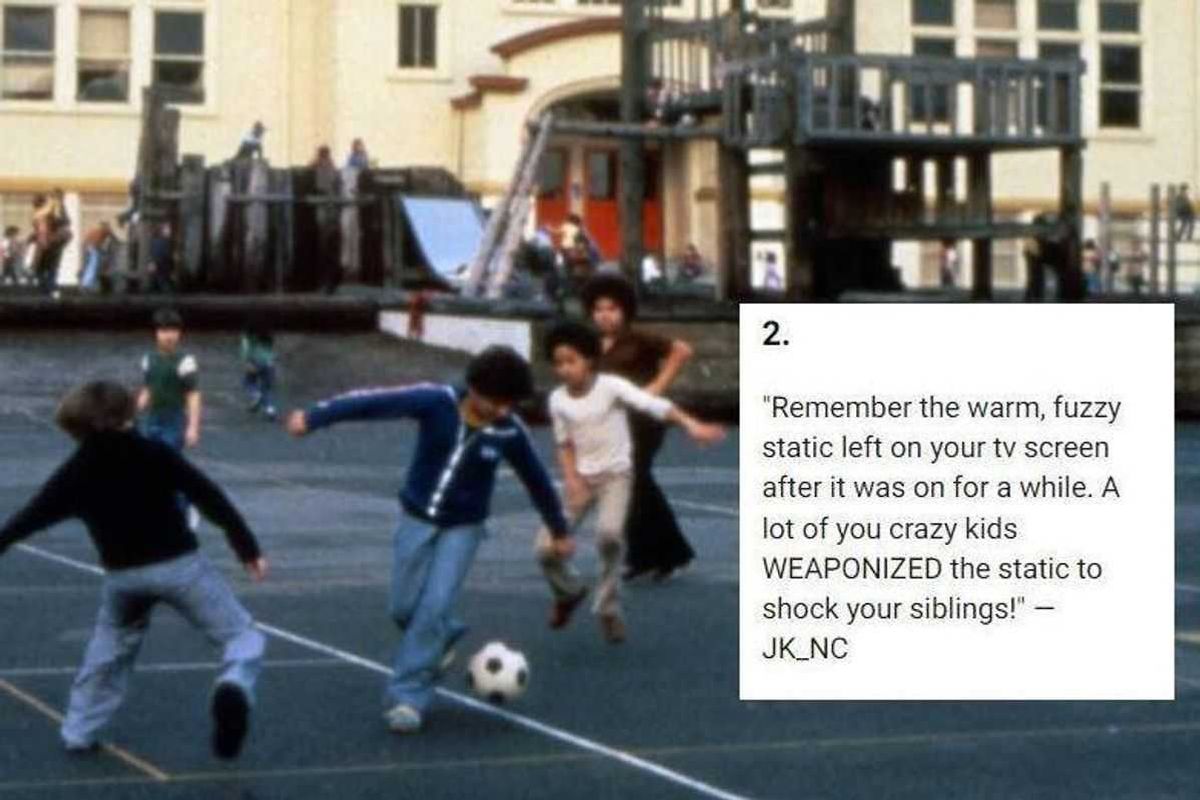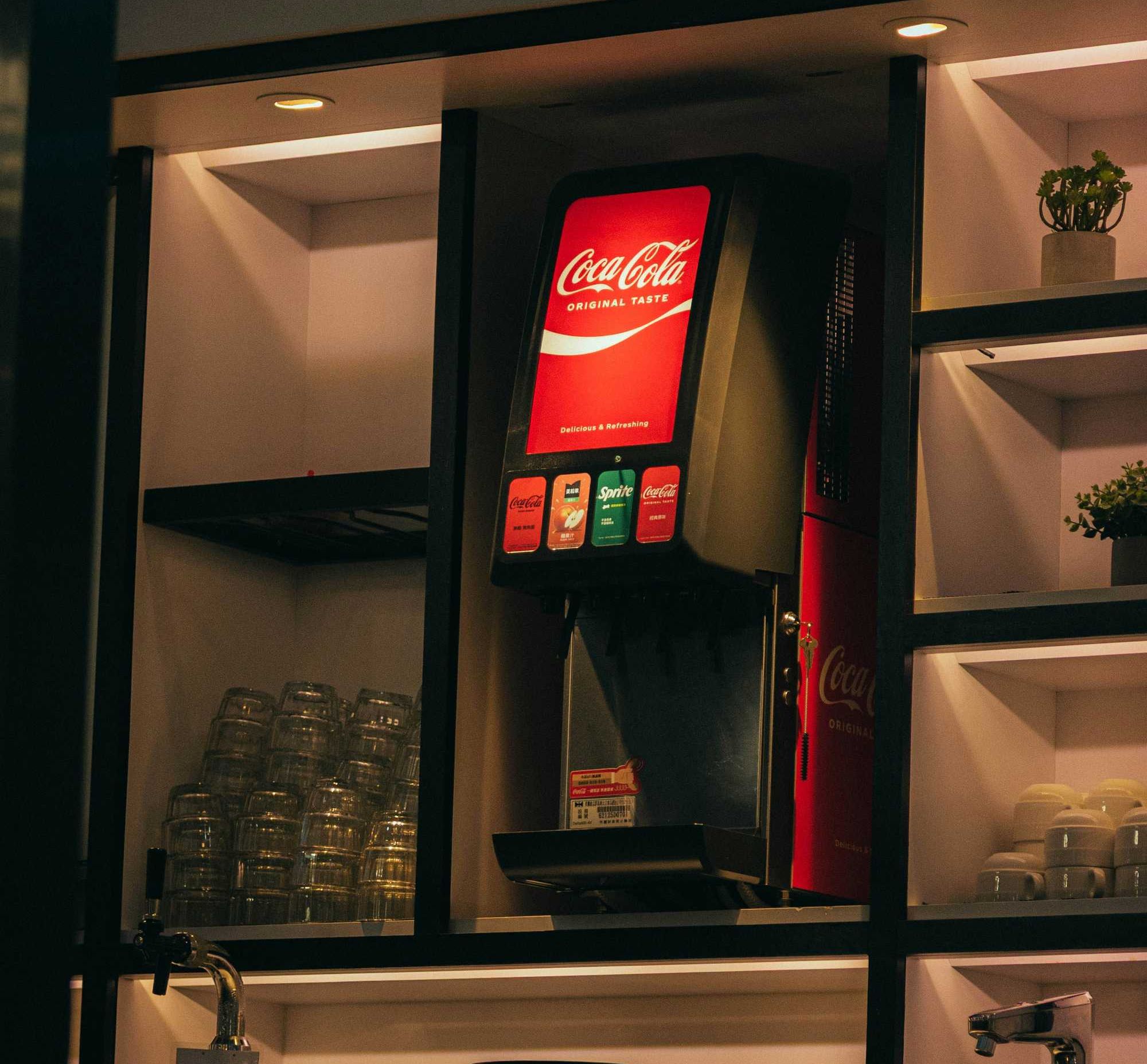It's easy to criticize culture and lifestyle in the USA, but overall, it's still one of the best places in the world to live. Take it from the Europeans, who find plenty to admire within our borders; especially when it comes to regular, daily life.
Even though European countries and the Unites States are roughly on the same level development-wise, there are still some stark differences in their ways of life. Americans may look to Europe and feel a bit jealous over their free healthcare systems and more laid-back approach to their professional lives. But Europeans who visit America are also in awe of some of the everyday things that Americans take for granted, which seem to be luxuries. A Reddit user asked Europeans to share the everyday American things that they believe are luxuries, and the question received nearly 13,000 responses.
Even if there are things we may envy about Europe, Europeans clearly admire many things about the American way of life.
Here are 16 of the best responses to the question: “Europeans of Reddit, what do Americans have every day that you see as a luxury?”
1. Disability access
"Disability access everywhere. I can go to any place -- theater, store, office, school, whatever -- with confidence that I'll be able to navigate fine in my wheelchair. They'll have ramps and/or elevators."
"Of all the things in this thread, the disability access is it IMO. The Americans with Disabilities Act of 1990 was an absolute game changer, and European countries and the EU as a whole should be embarrassed for not having something like it."
 America has strict mandates and requirements about accessibility in public spaces. Photo by Marek Lumi on Unsplash
America has strict mandates and requirements about accessibility in public spaces. Photo by Marek Lumi on Unsplash
2. Climate changes
"You can pretty much choose to live in any climate you like when you live in the USA and still be in the same country. You like 4 seasons: Move to the Northeast. You like the humid ocean climate - move to Seattle. You like dry warm weather - move to Los Angeles. You like deserts, move to Arizona. You like warm and humid weather - move to the Southeast."
"I work as an ecologist and the amount of biodiversity in California is insane. I'll do biological surveys a few hundred miles apart and see so many different plants and animals at each site. I've even done work at sites fairly close to each other (sub 50 miles apart) and will still find stark differences between sites. It's a magic state for wildlife biologists."
Famously, Americans travel outside their home country far less than most of the rest of the world. The extreme diversity of habitats and cultures there are to visit within in America is one big reason.
3. Big kitchens
"Big kitchens and big refrigerators/ freezers. Even in my student apartment, we had a pretty good-sized kitchen. I was dating a Czech girl and her parents came to visit. When they went to my apartment for dinner, the mom was just amazed at the size of my fridge. They were amused when I dumped the scraps in the sink and turned on the garbage disposal. They’d heard about it but had never seen one."
4. Square footage
"The massive houses, a special room just for your massive washer and dryer units, 2 car garage, basically you have tons of space."
"The size of your homes in places like Utah and Texas. There's a dedicated room for everything. Kids playroom that isn't the living room or the kid's bedroom, walk-in pantry room, a laundry room."
5. Free refills
"As an American, it's so easy to take this for granted. Similarly, getting free ice water in the US as well is something I often forget isn't exactly a thing in many other parts of the world."
 Many places in Europe don't expect you to tip, but they also don't provide free refills on drinks. Photo by Jarden Bellamkonda on Unsplash
Many places in Europe don't expect you to tip, but they also don't provide free refills on drinks. Photo by Jarden Bellamkonda on Unsplash
6. National Parks
"There’s just human development on virtually every inch of large parts of Europe. So even when there are parks, they’re not always as untouched as American parks. And the population density in large parts of Europe means you see a lot more people in the parks. America has national parks that are so untouched and massive that you can really be alone if you want to be."
There are less wide open spaces in Europe than in America, just based on land size alone. Europeans who visit or move to America are simply stunned by the vast scale of the United States' largest parks.
7. A/C
"Americans pump it all summer long."
About 90% of American households have some form of air conditioning compared to just 20% of European homes. This is, in part, due to summers in America getting quite a bit hotter.
8. Two peaceful neighbors (Mexico and Canada)
"Remember, the world's longest undefended border is between Canada and the United States. That says something about our relationship."
"We Europeans both love and hate each other in ways that Americans will never understand. But basically, not being French should be enough."
@stakuyi.fanWhy do England and France hate eachother #Knowledge #stakuyi #shorts #history #education #story
10. Big schools
"My high school just had a pool, 3 gyms, an agricultural barn with stalls for students to keep the animals they were raising to show at the rodeo, a few labs, a theater, a full-size kitchen that was used for the culinary classes to share (not the cafeteria), 3 tennis courts, 2 soccer fields that were also used for football practice, and a football stadium with a Jumbotron. At the end of the year, the culinary classes would cook breakfast for the graduating class."
11. Free public bathrooms
"As an American who lived in Europe with little kids, this was frustrating. My wife found an app of free public restrooms in Europe."
- YouTube www.youtube.com
12. Mexican food
"Real Mexican food. We have Mexican restaurants in my home country, but the owners are usually not Mexican and it’s just not the same. Now, I’m living in Japan and it’s the same problem… Mexican food is so delicious."
13. Supermarkets
"Enormous supermarkets with abundant choice. I always feel like I'm in Willy Wonka's chocolate factory when I enter one. There's so much stuff!"
14. Big showers
"This stands out - I have two really great friends (an expat woman and her husband) that live in the UK, and when I went to stay at their first place together, their shower was like a 2-foot-wide plastic shield outside of the bathtub. I had to stay so close to the wall, so I didn't spray water all over the bathroom."
15. Money
"There’s a huge gap between the volume of physical/material stuff Americans count as normal and what Europeans consider normal. An American home might have three TVs versus one, six or seven rooms full of furniture instead of two or three, extra small appliances added all the time like air fryers and espresso machines, new PCs and phones every couple of years because of constant upgrade marketing … the American perception that there’s not enough money is partly down to the giant volume of things Americans regard as minimum equipment."
"In effect, when you account for wages and cost of living, luxuries (which usually have similar prices around the world) are proportionally cheaper for Americans. They make up less of their wage and, therefore, make less of a difference. Standard of living is completely different for a working-class American because they can afford luxuries people from working class in other countries can't."
16. 24-hour stores
"Stores being open for 24 hours."
Stores and restaurants that stay open all night do exist in Europe, but they're far more common in America.
This article originally appeared two years ago. It has been updated.









 A woman reading a book.via
A woman reading a book.via A woman tending to her garden.via
A woman tending to her garden.via
 How many of us have visceral memories of VHS tapes?
How many of us have visceral memories of VHS tapes? Summer vacation was the best.
Summer vacation was the best.  Who didn't love a Lite Brite?
Who didn't love a Lite Brite? 
 Cats can be finicky about how they're held.
Cats can be finicky about how they're held.  Squish that cat.
Squish that cat. 
 A mom kissing her daughter's forehead. via
A mom kissing her daughter's forehead. via  A mom and daughter lying on sheet music. via
A mom and daughter lying on sheet music. via 
 America has strict mandates and requirements about accessibility in public spaces. Photo by
America has strict mandates and requirements about accessibility in public spaces. Photo by  Many places in Europe don't expect you to tip, but they also don't provide free refills on drinks. Photo by
Many places in Europe don't expect you to tip, but they also don't provide free refills on drinks. Photo by